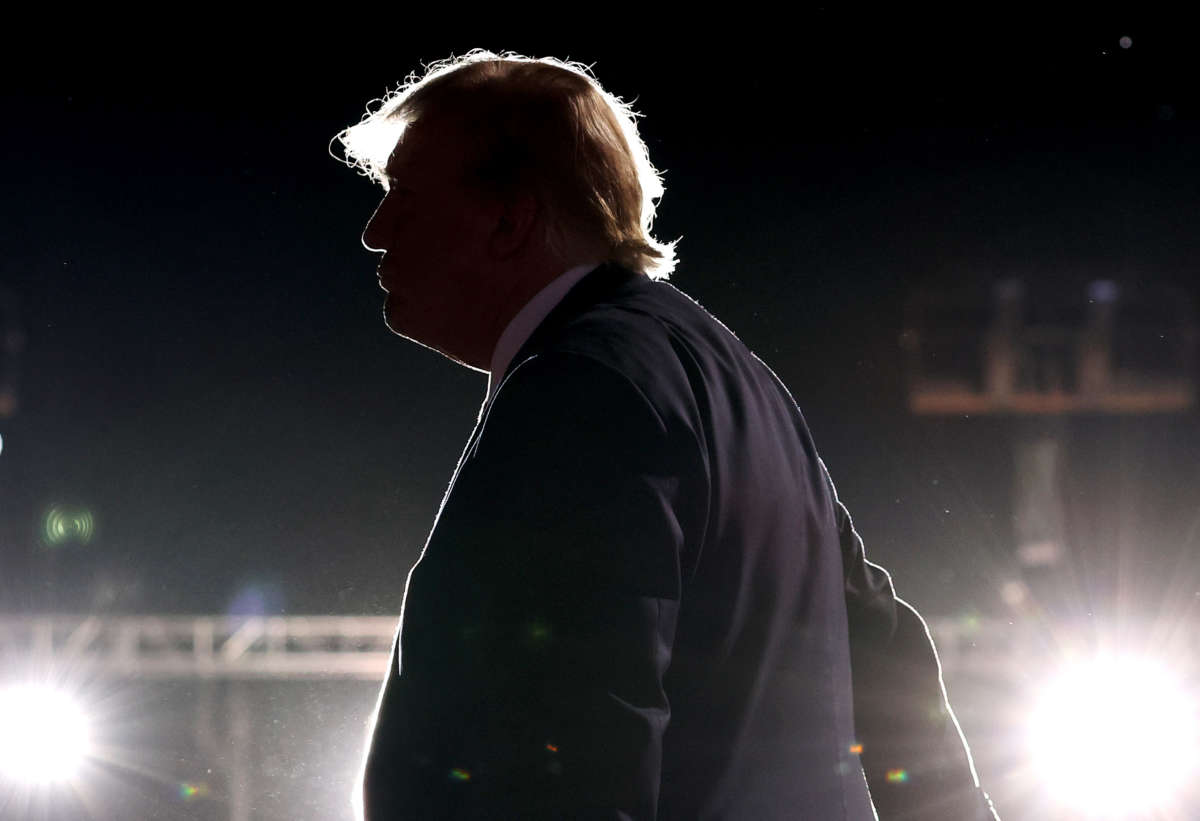A group of prosecutors within the Department of Justice (DOJ) believe there is enough evidence to charge former President Donald Trump with a crime relating to his improper removal of government documents from the White House to his Mar-a-Lago home, following his departure from office.
According to Bloomberg, which cites unnamed sources with knowledge of the matter, DOJ prosecutors believe Trump could be charged, at minimum, with obstruction.
The prosecutors have not yet made any formal recommendation to Attorney General Merrick Garland, who has the final say in whether to charge Trump. The sources also told the publication that it’s also unlikely that the former president would be solely charged with obstruction.
The sources also said that charges, if they are to come about, won’t be filed before the midterms, and will likely come after the Christmas holiday.
According to a partially released affidavit from the Mar-a-Lago search warrant, the FBI said that it had “cause to believe that evidence of obstruction would be found at” the former president’s resort. It’s highly likely that that claim is related to a subpoena that was issued to Trump this past spring, where he was ordered to return all classified documents taken from the White House and to affirm, through his legal counsel, that he had none remaining on the premises.
Earlier this month, it was revealed that Trump had ordered someone to move documents — including some marked classified — from a storage locker at Mar-a-Lago to his private residence, both before and after the DOJ came to the property to execute their subpoena order. That action could constitute an act of obstruction, as it demonstrates Trump trying to hide documents and disobey a direct subpoena order telling him to turn over all classified documents.
In addition to obstruction, the affidavit indicated that the DOJ was also looking into the possibility of Espionage Act violations by Trump. That law, though historically used to prosecute government whistleblowers and antiwar activists, is concerned with the handling of government documents in a way, whether purposeful or unintentionally, that harms or could harm national security.
The National Archives and Records Administration (NARA) has tried since the beginning of 2021 — when Trump left the presidency — to recover government documents it knew he had been keeping in the residence wing of the White House while he was in office. After nearly a full year of refusing to hand those documents back, the former president finally relented, agreeing to let the agency recover them in January 2022 (but only after they had threatened to involve Congress in the matter).
When NARA found classified materials among the documents, they alerted the DOJ, which led to the spring subpoena order. After evidence surfaced that the former president indeed had more classified documents at Mar-a-Lago, even after he denied it, the FBI searched the estate in August.
More than 11,000 documents have been recovered altogether, including more than 300 documents that had classified markings on them. NARA has stated that it is still missing some material it believes Trump had in his possession at the start of 2021.
Join us in defending the truth before it’s too late
The future of independent journalism is uncertain, and the consequences of losing it are too grave to ignore. To ensure Truthout remains safe, strong, and free, we need to raise $31,000 in the next 48 hours. Every dollar raised goes directly toward the costs of producing news you can trust.
Please give what you can — because by supporting us with a tax-deductible donation, you’re not just preserving a source of news, you’re helping to safeguard what’s left of our democracy.
